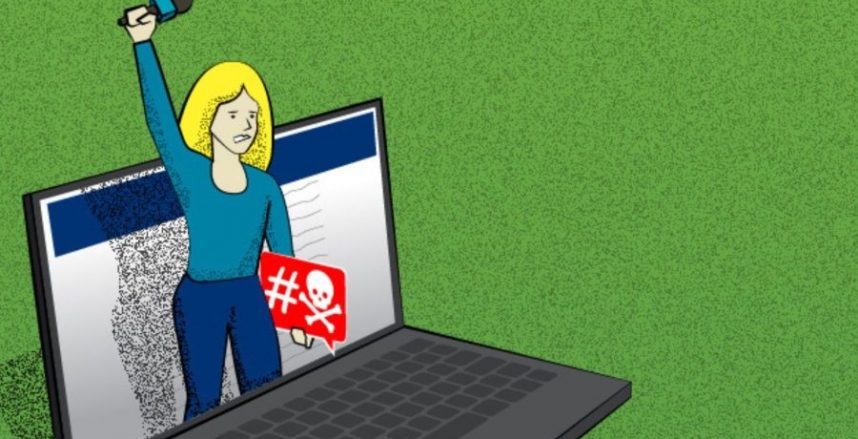
Report says online abuse is becoming so ‘normalised’ that journalists often do not report it – or have any faith in institutional protection.
Online threats against journalists are more intense and common than physical ones, but most newsrooms have not set up safety protocols to help them respond to these attacks, while laws do not provide efficient protection, BIRN and IJAS’s new report reveals.
Working in an environment that is becoming primarily digital has left journalists and media more exposed to online to attacks, insults and threats, but many newsrooms have not established mechanisms to deal with such cases and legislation does not provide adequate protection either.
These are some of the findings from the latest report, “Journalists’ Safety in the Digital Environment”, which BIRN Serbia and the Independent Journalists’ Association of Serbia, IJAS, published on July 18.
Online attacks and threats impact journalists’ mental health and private lives and affect relations in the newsrooms and commitment to professional standards. Online abuse is typically “normalised” and
considered as part of the job.
“The most striking finding is that hate speech, threats, insults, intimidation, pressure and other forms of digital violence against journalists are so widespread in Serbia that journalists believe that it has become a daily ‘normal’ environment in which they work and that it is the price they pay for their work.
“When faced with digital threats and insults, they generally do not report them because they know that, at the institutional level of protection, things are rarely undertaken and resolved,” says Aleksandra Krstic, associate professor at the Faculty of Political Sciences of the University of Belgrade, one of the report’s authors.
Endangerment of journalists’ safety may lead to self-censorship and journalists may even abandon stories of public interest. which then lowers the quality of information the public receives and puts at risk media independence and freedom of speech, the report notes.
The report says many journalists rarely report insults and threats, warning that “the lack of trust that journalists have in the institutional protection system, the competent prosecutor’s office or the courts, is alarming”.
Marija Babic, lawyer at IJAS and another author of the report, says it is necessary to harmonise laws with developments in the digital space in order to prosecute attacks.
“Competent authorities should process attacks and threats to journalists as quickly as possible. It is also very important that such attacks are condemned by high-ranking state officials, who should stop pressuring and targeting journalists and the media as this is only making them [journalists and media] targets of very serious attacks,” says Babic.
The report also notes the lack of professional solidarity with attacked journalists and the fact that journalists and editors mainly turn to the public – which is the only thing they still trust – hoping that publicising attacks and threats will save them from potential attackers.
“All these findings should be read in a general, social context that is not conducive to the development of free and independent media. Threats and pressures, intense public campaigns led by representatives of the highest state authorities, a culture of impunity and weak institutions lead to a situation where journalists and the media are legitimate ‘targets’.
“Apart from the need to strengthen the capacities of the newsrooms themselves, we should insist on more effective protection mechanisms through amendments to the laws and a stronger response from institutions,” says Tanja Maksic, program manager and researcher at BIRN and one of the authors of the report.
The full report in Serbian and English is available on BIRN Serbia’s website.